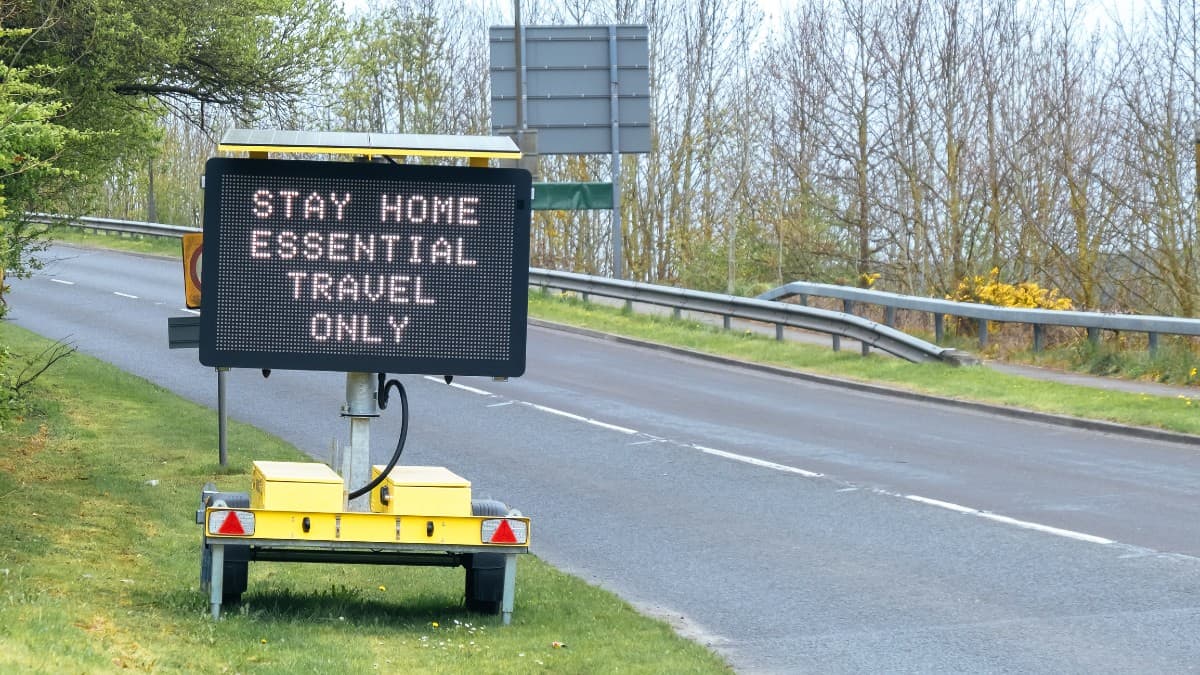The government has announced a new set of international travel restrictions in an effort to stem the spread of dangerous strains of Covid-19. All passengers entering the UK will now have to provide a negative Covid-19 test taken up to 72 hours before departure. Here’s everything you need to know about the new rules.
What are the new Covid-19 procedures for those arriving in the UK?
If you are travelling to the UK by boat, plane or train, you will need to present proof of a negative Covid-19 test to your carrier when boarding, as well as your passenger locator form. Failure to present both could see you being denied boarding.
The UK Border Force will conduct spot checks on arrival to ensure compliance. Those found flouting the rules will receive an immediate fine of £500.
Why were the new rules imposed?
Transport Secretary Grant Shapps said that the new rules are in response to the growing risk of new Covid-19 variants being imported into the country.
Mr Shapps said, “pre-departure tests will provide a further line of defence – helping us control the virus as we roll out the vaccine at pace over the coming weeks.”
New variants of the virus have already been identified in South Africa, Denmark and the UK itself. There is particular concern about the South African variant and how effective the vaccine will be against it.
This has led to the government placing a blanket ban on non-UK and Irish passengers entering the UK from South Africa and several southern African countries.
When will the new rules come into force?
No specific date has been given for when the new rules will come into effect. But Mr Shapps has indicated that it will likely be on Wednesday 13 January or Thursday 14 January.
Are there any exceptions?
Yes. The following people are exempt from the new rules:
- Children aged under 11
- Arrivals from the Republic of Ireland
- Hauliers
- Transport crews
- People travelling from countries without the infrastructure available to deliver the tests
Will I still need to self-isolate?
Yes. If you are arriving from a country not on the travel corridor list, you will still have to self-isolate for 10 days even if you show a negative Covid-19 test result.
If you are coming from a country not on the travel corridor list, the government says that you can reduce your self-isolation period from 10 days to as few as 5 days by taking another test on or after the fifth day of leaving the country.
Are the rules the same in other devolved nations?
As of now, the rules apply to England and Scotland.
However, ministers are said to be working closely with officials from Wales and Northern Ireland on similar measures for both countries.
Do I need a negative Covid-19 test if I am travelling abroad?
That depends, as the rules are different for all countries. For example, hauliers crossing the Channel to France will need to present a negative Covid-19 test following a recent decision by the French Government.
If you are legally permitted to travel abroad (e.g. for work), the best thing you can do is check what the rules are for the country you’re travelling to, including whether you need a negative test result. You can use the government’s foreign travel advice service or consult the embassy of your destination country.
When you travel, remember to observe the rules by wearing a face covering, washing your hands regularly and observing social distancing where possible.
Also, think about picking up a travel credit card that doesn’t charge you extra when you are spending abroad. Every single penny counts during these uncertain times!







